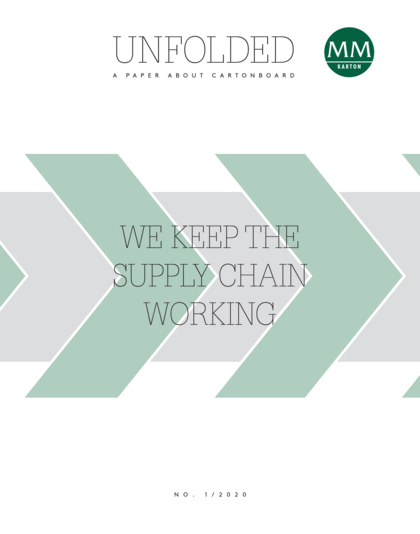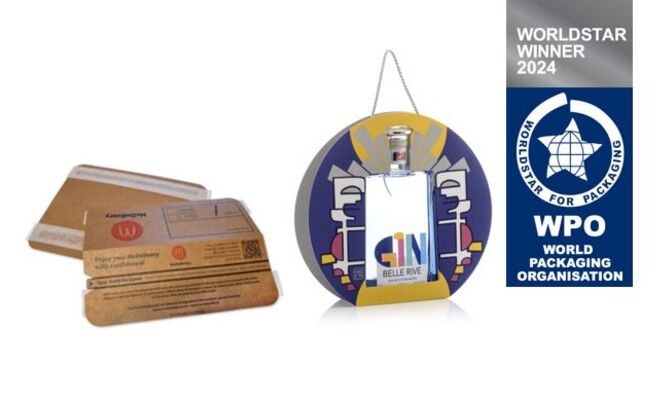Update: EU Circular Economy Package and Single Use Plastics Directive
29.06.2020 - Sustainability
Both the corona pandemic and climate change have shown that safety and prosperity depend on the way we maintain aspects of the common good, like public health and climate stability, in the long term: Society and the economy must be structured to be resilient, sustainable and climate-friendly. The EU Circular Economy Package with its Single Use Plastics Directive (SUPD) and the Packaging and Packaging Waste Directive (PPWD) can support this effort and cover not only the ecological aspects (protecting the environment from waste and overuse of resources) but also economic (investments and growth) and social (job creation) aspects.
Green Deal – Connecting climate protection and the circular economy
Climate protection and the circular economy go hand in hand. In December 2019, the EU presented the Green Deal and in connection to it launched a number of policy initiatives intended to ensure that Europe reaches its main target of net zero greenhouse gas emissions by 2050. Greenhouse gas emissions are to be reduced between 50 % to 55 % by 2030 (rather than the previously targeted 40 %).
As part of the Green Deal, the EU Commission introduced a new action plan on 11 March, 2020. Its purpose is to accelerate development toward a circular economy. The action plan is intended to strengthen consumer rights and make sustainable products the standard in the EU. Products that are launched on the EU market must have longer service lives, be easier to re-use, repair and recycle, and contain a high proportion of secondary rather than primary raw materials. Waste is to be avoided whenever possible or used as high-quality secondary raw materials. The commission is also considering an EU-wide, harmonised model for the separate collection of waste and for labelling (marking).
With the Green Deal, the commission focuses on the so-called “high-impact” sectors (textiles, construction and electronics). Where the packaging industry is concerned, the action plan formalises the EU Commission’s approach:
- Reduction of unnecessary packaging material and packaging waste and of the complexity of packaging as well as the number of materials used
- Plastics – New and mandatory recycling and recycled content requirements; special focus on micro-plastics as well as biobased and biodegradable plastics
- Foods – New law initiative for replacing single use plastics packaging in the food service sector
Single Use Plastics Directive – German draft regulation
The Single Use Plastics Directive issued by the EU in June 2019 stipulates that all plastic products for which more sustainable alternatives are available be forbidden after 3 July 2021. Plastic food packages are to be significantly reduced. As part of Extended Producer Responsibility (EPR), manufacturers are to bear the costs of treatment of the waste they produce. The member states are now obligated to implement the directive in their own national laws.
The German Federal Ministry for the Environment (BMU) presented a draft of a Single Use Plastics Ban (Einwegkunststoffverbotsverordnung, EWKVerbotsV) in April 2020. With the ban, the BMU is translating the prohibitions of the SUPD 1:1 into German law. In the food service sector, for instance, plates, cutlery, straws and stirrers made of plastics will be banned. The prohibition further encompasses packaging made of Styrofoam (PS polystyrene) and products in general made of oxo-degradable plastics.
The German draft presented by the BMU does not go beyond the bans listed in the SUPD and adopts the exact definition of “plastic” without amendment. The final approval process is still ongoing.
Controversial definition of plastic in the SUPD
In the SUPD, “plastic” is controversially defined as a synthetic polymer which
- “can function as a main structural component of final products,
- with the exception of natural polymers
- that have not been chemically modified.” (see Article 3 of the DIRECTIVE (EU) 2019/904 OF THE EUROPEAN PARLIAMENT AND OF THE COUNCIL of 5 June 2019)
An item is considered to be a “single use plastic item” if it is “entirely or partially” made of plastic. The practical meaning of that definition is still a matter of legal uncertainty.
In order to clarify the “plastic” definition and further specify whether an item is to be classified as a single use plastic item as defined by the directive, the commission has undertaken in the SUPD to publish guidelines on single use plastic items. An initial draft has now been submitted. It states that an item would already be considered a plastic item when polymers – regardless of their percentage of the mass of the overall product – are essential for the intended use of the product. This means that for instance paper packaging laminated with plastic could fall under the ban, even if the share of plastic makes up only a small percentage of the mass of the entire package.
Appeal to change the SUPD definitions
Legal experts are already pointing out that this definition contradicts the text of the directive and could lead to problems of legality. Pro Carton and a broad alliance of the cartonboard and folding carton value chain have expressed their concerns and are appealing for a revision to more closely approach the original intent – the reduction of plastics in the world’s oceans.
The definition of “plastic” and what constitutes a “main structural component” as defined by the draft of the Single Use Plastics Directive counteract the target of the directive, which is to prevent and reduce the impact of certain plastic products on the environment and the oceans. One solution could be to set thresholds for the plastic content permitted in products (% of mass) without causing the item to be classified as a plastic product.
The developments around Covid-19 have shown us that, more than ever, the primary goal of a circular economy must be to connect sustainability with efficiency. It must be proven that ecological targets like saving resources can still mean economic growth. The EU Circular Economy Package and the Single Use Plastics Directive are important and correct. However, we must not lose sight of the original goal, which is to reduce waste by foregoing those single use plastic products that are most often carelessly thrown away and contaminate the marine environment.



